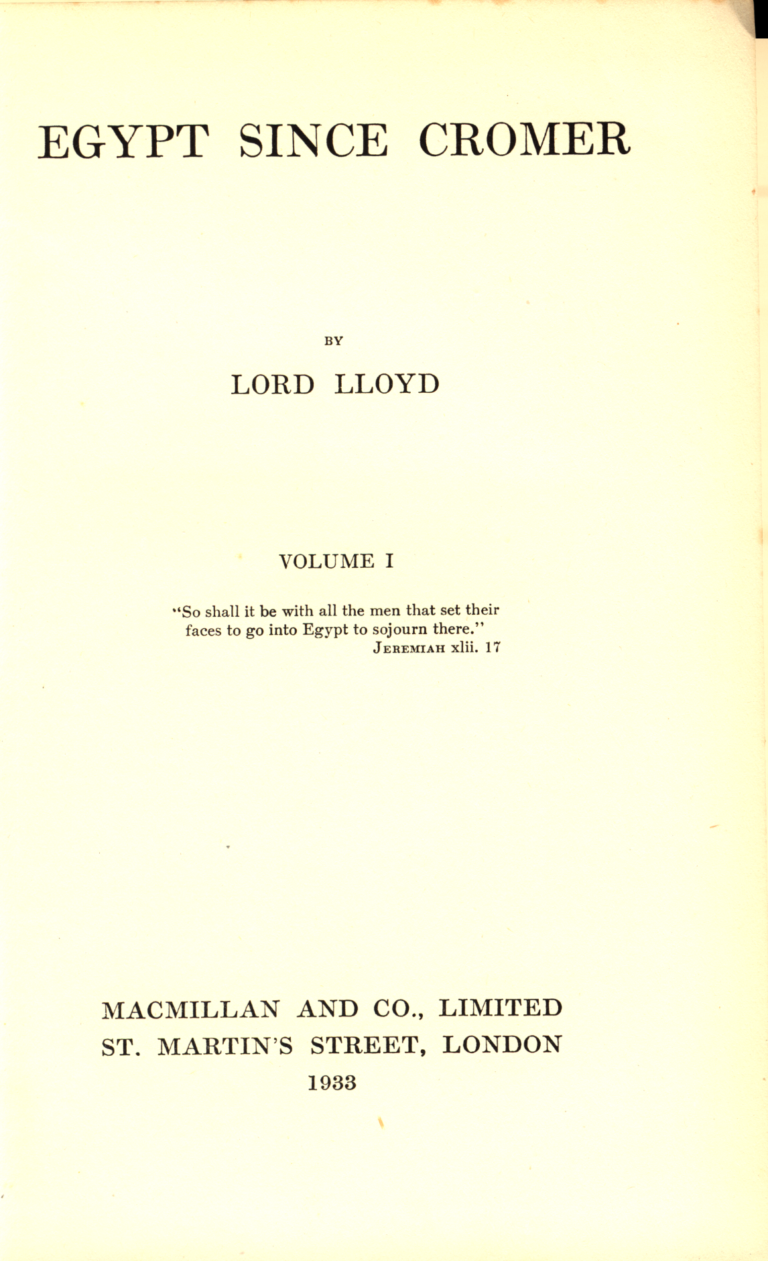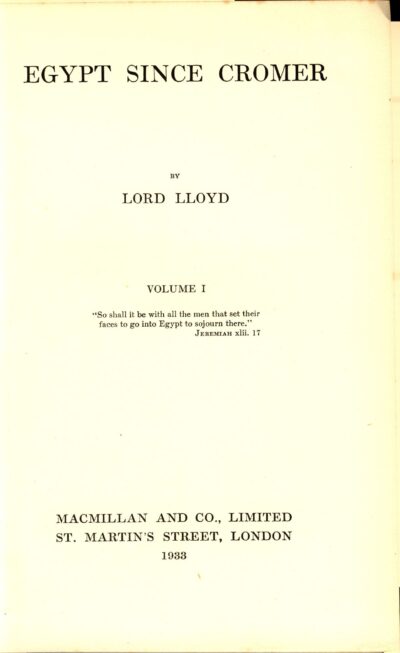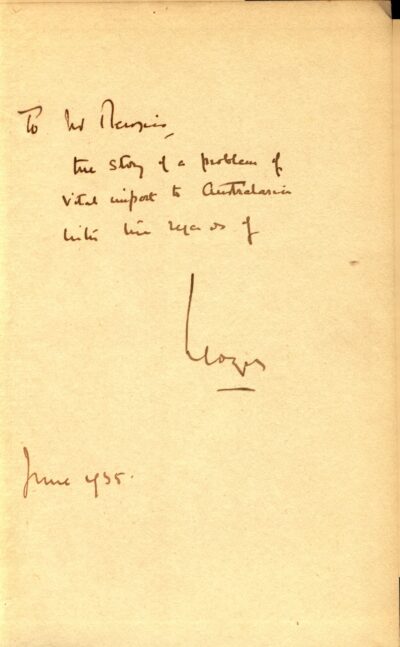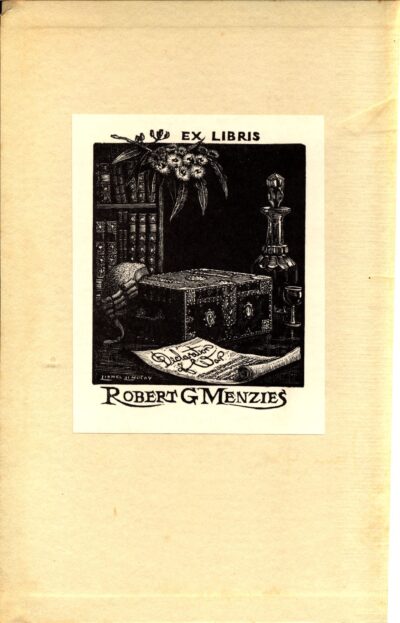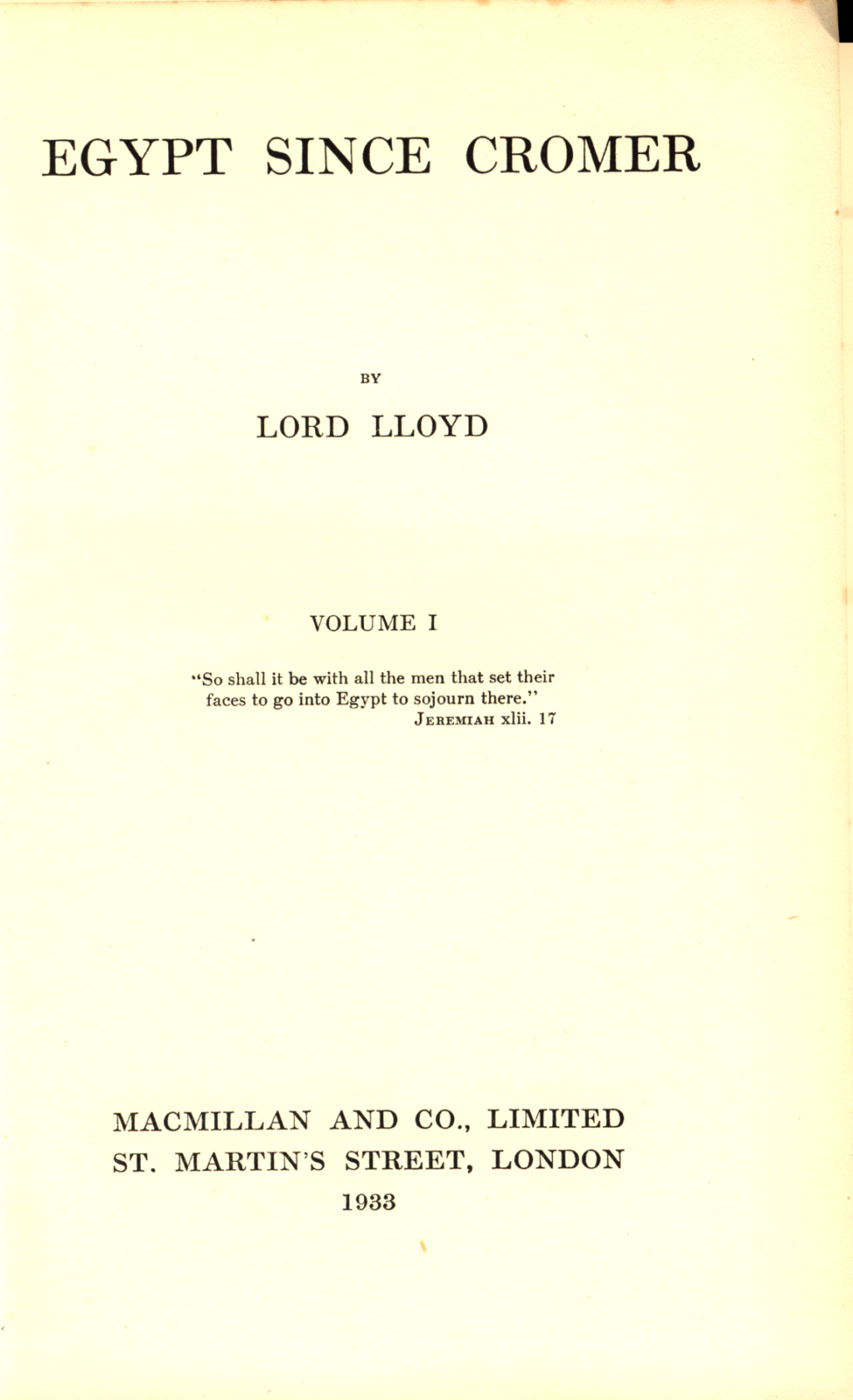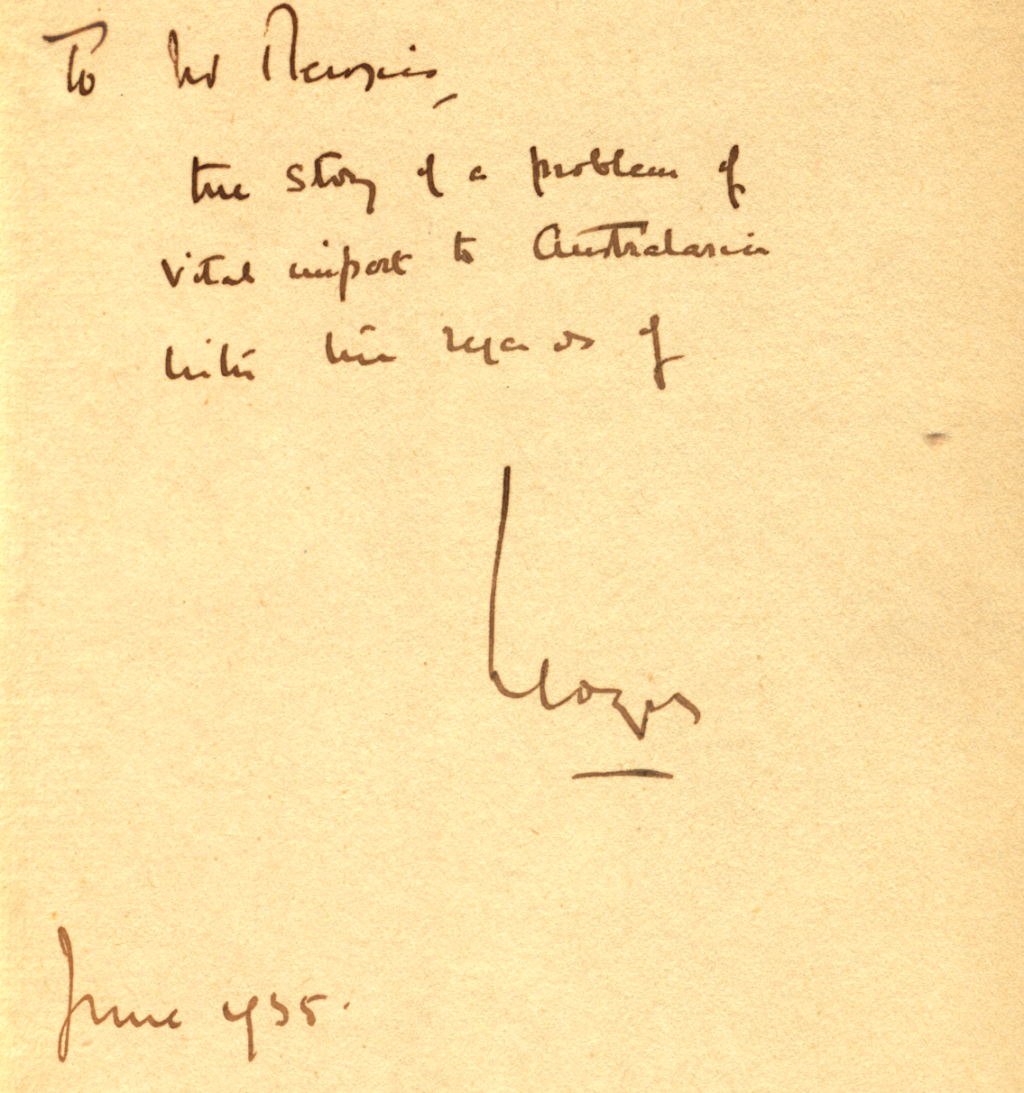George Baron Lloyd, Egypt Since Cromer, 2 vols (1933-34)
George Ambrose Lloyd, 1st Baron Lloyd, was a British conservative politician and colonial administrator.
Born in Warwickshire in 1879 as the son of a wealthy MP, Lloyd had a typical privileged English upbringing which included attending Eton and Trinity College, Cambridge. What was distinctive, however was Lloyd’s early interest in foreign affairs, as the death of both his parents saw him leave Cambridge without taking a degree and embark on a tour of India, afterwards joining the foreign office.
Taking a posting in Constantinople, Lloyd became highly familiarised with the Ottoman Empire, only to face off against them when the outbreak of the First World War saw him involved in day one of the Gallipoli landings alongside the ANZACs. After taking part in a short diplomatic mission to Petrograd aimed at bolstering communication with allied Russia, he spent the rest of the war in various roles around Egypt and the Middle East for which he earned a variety of commendations.
This led to Lloyd being appointed Governor of Bombay (1918-1923) where he staunchly opposed Indian independence yet took on a positive role in fostering the first Indian team of athletes to attend the Olympics. He was subsequently appointed High Commissioner in Egypt (1925-1929).
Britain had maintained a de-facto protectorate over Egypt since 1882, essentially usurping control from an ailing Ottoman Empire, and this had been formalised with the outbreak of WW1 when Britain seized and formally occupied the territory, placing a new Sultan as a figurehead national leader. The British themselves maintained that their policy in Egypt was to help lay the foundations of modern self-government and then leave, but the liberal ideal of their administration was seldom lived up to, particularly in 1919 when anticolonial riots and their suppression led to hundreds of deaths. Nevertheless, in 1922 a limited form of self-government was introduced, and in 1936 the Anglo-Egyptian Treaty saw Britain withdraw its occupying forces from everywhere except the Suez Canal zone.
Egypt Since Cromer serves as a largely self-justificatory account of British rule written by a committed imperialist who was directly involved, but it nevertheless identifies a number of important political, social, and strategic issues which Egypt then faced. The book was given to Robert Menzies in 1935, with the inscription:
‘To Mr Menzies, true story of a problem of vital import to Australasia with the regards of Lloyd. June 1935.’
That ‘vital import’ was the fact that British control of Egypt secured access to the Suez Canal, the primary route through which Australian goods could reach their main market, as well as nearby strategic oil fields. For this reason, in both world wars Australian troops would be sent directly to Egypt and the Middle East to protect their own interests and those of the British Commonwealth, and this remained the plan drawn up by strategic decision makers plotting out a ‘World War 3’ scenario in the late 1940s and early 1950s.
The book is an important artefact of that strategic connection between Australia and Egypt, which suggests that Menzies had been taking a keen interest in Egyptian affairs from an early date. This is noteworthy, because it helps to explain Menzies’s otherwise inexplicable personal intervention in the Suez Crisis of 1956 – he saw Egyptian President Gamal Abdel Nasser’s nationalisation of the Canal as not just a threat to its former owners Britain and France, but as a direct threat to Australian interests.
You might also like...
Sign up to our newsletter
Sign up for our monthly newsletter to hear the latest news and receive information about upcoming events.

